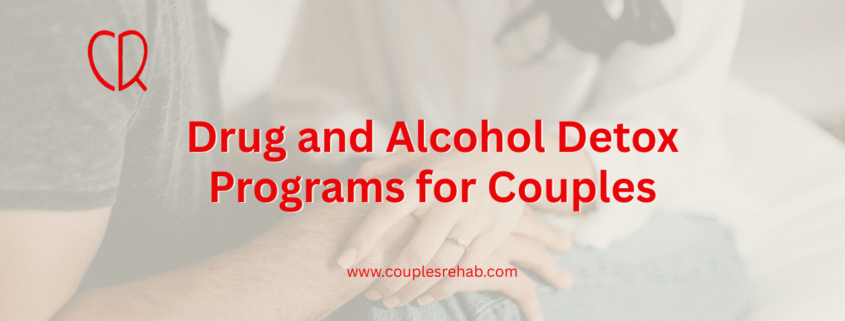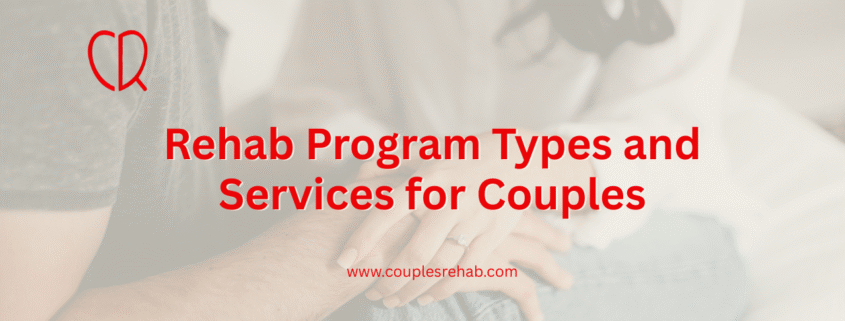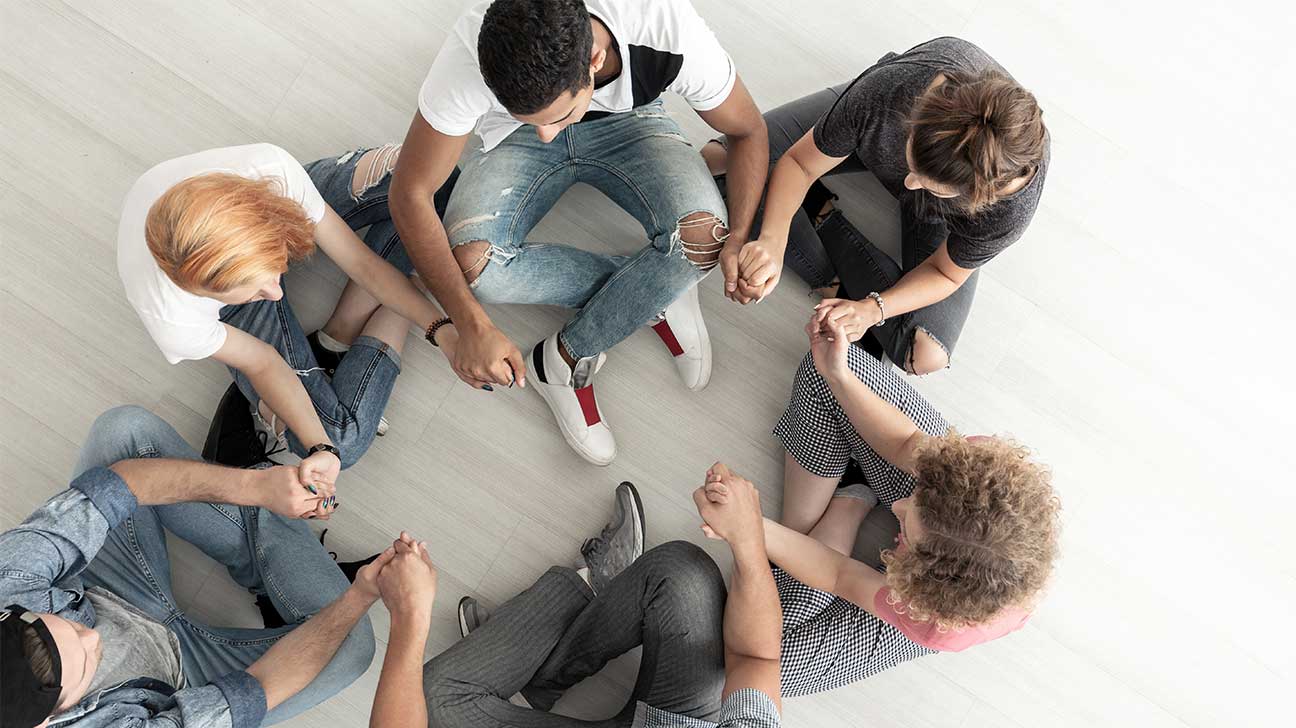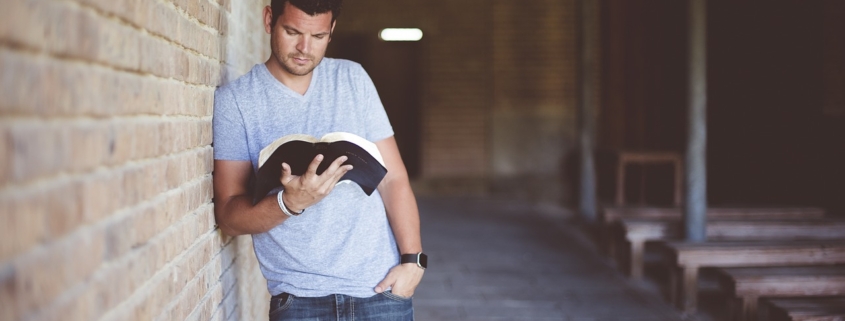When addiction affects both partners in a relationship, the path to recovery can feel overwhelming and isolating. However, drug and alcohol detox programs for couples offer a unique opportunity for partners to begin their healing journey together, providing mutual support during one of the most challenging phases of recovery. These specialized programs recognize that addiction doesn’t just impact individuals—it affects entire relationships, and recovery can be more effective when approached as a team.
Research shows that couples who enter treatment together consistently report greater reductions in substance use compared to those who receive individual therapy alone. This comprehensive guide will explore everything you need to know about couples detox programs, from understanding the process to choosing the right facility for your unique situation.
Understanding Couples Detox Programs
Medical detox for couples represents a specialized approach to addiction treatment that addresses the unique dynamics present when both partners struggle with substance use disorders. Unlike individual detox programs, these comprehensive services are designed to support both partners simultaneously while maintaining focus on relationship healing alongside individual recovery.
The fundamental difference lies in the approach: while traditional detox focuses solely on safely managing withdrawal symptoms for one person, couples medical detoxification considers the relationship dynamic as an integral part of the healing process. This means addressing how addiction has affected communication patterns, trust issues, and codependent behaviors that may have developed over time.
Medically supervised detox for couples involves 24/7 medical monitoring by qualified healthcare professionals who understand both addiction medicine and relationship dynamics. This supervision is crucial because withdrawal symptoms can vary significantly between partners, and the emotional support system inherent in couples treatment can actually enhance the detox process when properly managed.
These programs typically include individual medical assessments for each partner, joint counseling sessions, and coordinated treatment plans that consider both partners’ specific needs. The goal isn’t just to achieve physical sobriety, but to lay the groundwork for a healthier relationship that supports long-term recovery for both individuals.
Types of Detox Programs Available for Couples
Inpatient Detox for Couples
Inpatient detox for couples provides the highest level of care, requiring both partners to reside at a treatment facility during the detoxification process. This residential approach offers several advantages, including 24/7 medical supervision, controlled environment free from triggers, and intensive therapeutic support.
Most inpatient programs last between 3-10 days, depending on the substances involved and the severity of withdrawal symptoms. Couples may be housed in separate rooms for safety and medical monitoring purposes, while still participating in joint therapy sessions and meal times together. This structure maintains the supportive element of couples treatment while ensuring each partner receives individualized medical care.
The medical team typically includes addiction medicine physicians, registered nurses, mental health counselors, and specialists in behavioral couples therapy during detox. This comprehensive team approach ensures that both the physical and emotional aspects of withdrawal are addressed effectively.
Outpatient Detox for Couples
Outpatient detox for couples allows partners to live at home while receiving treatment during scheduled appointments at a medical facility. This option works best for couples with strong support systems at home and less severe withdrawal symptoms that don’t require 24/7 monitoring.
Outpatient programs typically involve daily check-ins during the first few days of detox, followed by less frequent visits as withdrawal symptoms subside. Partners attend medical appointments together, participate in counseling sessions, and receive medications as needed to manage withdrawal symptoms safely.
This approach offers more flexibility for couples who cannot take extended time away from work or family responsibilities, while still providing professional medical supervision and support throughout the detox process.
Safe Detox Programs for Couples
Safety remains the primary concern in any detox program, but safe detox programs for couples must address additional considerations unique to relationship dynamics. These programs implement protocols to ensure that neither partner’s emotional state negatively impacts the other’s medical stability during withdrawal.
Safety measures include separate medical evaluations, individualized medication protocols, and trained staff who can recognize when couple interactions might interfere with the detox process. Some facilities offer same-room accommodations for stable couples, while others maintain separate living arrangements during the acute withdrawal phase.
The Couples Detox Process: What to Expect
Initial Assessment and Intake
The process begins with comprehensive medical and psychological evaluations for both partners. Healthcare providers assess the types and amounts of substances used, length of addiction, previous treatment attempts, and overall physical and mental health status. This dual assessment process is crucial for developing coordinated treatment plans that address each partner’s specific needs while considering their relationship dynamics.
During intake, couples also meet with relationship specialists who evaluate communication patterns, codependent behaviors, and relationship strengths that can support recovery. This assessment helps determine whether joint treatment is appropriate or if temporary separation during detox would be more beneficial.
Medical Evaluation and Withdrawal Management for Couples
Withdrawal management for couples involves coordinated medical care that considers how each partner’s withdrawal timeline and symptoms might affect the other. Medical teams develop individualized protocols for each partner while maintaining awareness of their emotional connection and mutual support needs.
The withdrawal timeline varies by substance, but most couples can expect acute symptoms to last 3-7 days for alcohol and most drugs, with some substances requiring longer medical supervision. Partners may experience different withdrawal timelines, which requires careful coordination to ensure both receive appropriate medical attention.
Medication-Assisted Treatment for Couples
When appropriate, medication-assisted treatment for couples involves prescribing FDA-approved medications to help manage withdrawal symptoms and reduce cravings. Common medications include buprenorphine for opioid addiction, naltrexone for alcohol dependence, and various medications to manage anxiety, insomnia, and other withdrawal symptoms.
Medical teams carefully coordinate medication protocols between partners to avoid drug interactions and ensure that both partners understand their medication regimens. This coordination is particularly important when couples plan to continue living together during recovery.
Daily Schedule and Behavioral Couples Therapy During Detox
Most couples detox programs include daily individual therapy sessions, joint couples counseling, medical check-ups, nutritional support, and educational groups about addiction and recovery. Behavioral couples therapy during detox focuses on immediate stabilization of the relationship while addressing crisis situations that may arise during withdrawal.
These therapy sessions help couples develop healthy communication skills, establish boundaries around substance use, and create support systems that promote continued sobriety. Therapists work with couples to identify triggers, develop coping strategies, and plan for potential challenges during early recovery.

Benefits of Detoxing Together vs. Individual Detox
Mutual Support and Accountability
One of the most significant advantages of couples detox vs individual detox is the built-in support system that partners provide for each other. When both partners are committed to recovery, they can offer encouragement during difficult moments, celebrate milestones together, and maintain accountability for treatment compliance.
This mutual support often leads to higher treatment completion rates and better engagement with therapeutic activities. Partners who understand the struggles of addiction firsthand can provide empathy and understanding that may be difficult to find elsewhere.
Shared Experience and Understanding
Couples who detox together share a common understanding of the challenges involved in early recovery. This shared experience can strengthen their relationship and provide a foundation for ongoing recovery efforts. Partners learn to support each other’s sobriety rather than enabling continued substance use.
Relationship Healing During Early Recovery
Detox programs for couples address relationship issues immediately rather than waiting until individual recovery is established. This early intervention can prevent relationship dissolution and create a stronger foundation for long-term recovery success.
Research indicates that couples who address relationship issues during early recovery have better outcomes than those who focus solely on individual treatment initially. The immediate attention to communication patterns and relationship dynamics can prevent many common relapse triggers.
When Individual Detox Might Be Better
However, couples detox isn’t appropriate for every situation. Individual detox may be preferable when there’s a history of domestic violence, severe mental health issues that require specialized care, significant differences in readiness for recovery, or when one partner’s substance use is significantly more severe than the other’s.
Choosing the Right Couples Detox Program
Factors to Consider When Selecting a Program
When searching for couples detox centers near me, several factors should guide your decision-making process. First, verify that the facility is properly licensed and accredited by relevant medical and addiction treatment organizations. Look for programs with specific experience treating couples and staff trained in relationship dynamics.
Consider the facility’s medical capabilities, including 24/7 nursing care, physician availability, and ability to handle medical emergencies. The program should offer both individual and couples counseling, with therapists specifically trained in addiction and relationship issues.
Questions to Ask Potential Facilities
Before committing to a program, ask detailed questions about their approach to couples treatment. Important questions include: How do you handle situations where partners have different withdrawal timelines? What is your policy on room assignments for couples? How do you address relationship conflicts that arise during detox? What safety protocols are in place to protect both partners?
Also inquire about the facility’s success rates, aftercare planning services, and coordination with ongoing addiction treatment programs. Understanding their approach to transitioning from detox to comprehensive rehabilitation is crucial for long-term success.
Insurance Coverage Considerations
Cost of couples detox programs varies significantly depending on the level of care, location, and amenities offered. Many insurance plans cover medically necessary detox services, but coverage for couples-specific services may vary. Contact your insurance provider to understand your benefits and any pre-authorization requirements.
Some facilities offer payment plans or sliding scale fees for couples without adequate insurance coverage. Don’t let financial concerns prevent you from seeking help—many programs have financial counselors who can help explore options for making treatment affordable.
Location vs. Quality Considerations
While proximity to home can be important for family involvement and aftercare planning, the quality of the program should be the primary consideration. Couples detox centers near me may be convenient, but traveling to a high-quality program with specialized couples expertise may provide better outcomes.
Consider factors like family support availability, work obligations, and the need to remove yourselves from local triggers when deciding between local and distant treatment options.
After Detox: Transitioning to Couples Rehab
Natural Progression from Detox to Treatment
Detox is just the first step in the recovery process, and most couples benefit from transitioning directly into comprehensive addiction treatment programs. The relationships and communication skills developed during detox provide a foundation for more intensive therapy work in residential or outpatient rehab programs.
Couples Rehab offers specialized rehab program types and services for couples that build on the progress made during detox, providing continued medical support, intensive therapy, and life skills training necessary for long-term recovery success. These programs address the underlying causes of addiction while strengthening relationship bonds and communication skills.
Importance of Continued Couples Therapy
The therapeutic work begun during detox needs to continue throughout the recovery process. Ongoing couples therapy helps partners navigate the challenges of early sobriety, rebuild trust damaged by addiction, and develop healthy relationship patterns that support continued abstinence.
Many couples find that their relationship becomes stronger than it was before addiction when they commit to the ongoing work of recovery together. The tools and skills learned during detox and subsequent treatment can transform not just individual lives but entire relationship dynamics.
Long-term Recovery Planning
Successful recovery requires ongoing planning and support systems. Couples who complete detox together should work with their treatment team to develop comprehensive aftercare plans that include ongoing therapy, support group participation, and relapse prevention strategies tailored to their relationship dynamics.
This planning process should address potential challenges like job stress, family obligations, and social situations that might trigger relapse. Having a coordinated plan that both partners understand and commit to significantly improves the chances of long-term recovery success.
Frequently Asked Questions
1. How long does couples detox take?
Most drug and alcohol detox programs for couples last between 3-10 days, depending on the substances involved and the severity of withdrawal symptoms. Alcohol and benzodiazepine detox typically require 3-7 days of medical supervision, while opioid detox may last 7-10 days. The timeline can vary between partners based on individual factors like overall health, duration of substance use, and presence of co-occurring disorders.
2. Can couples stay in the same room during detox?
Room arrangements during medically supervised detox for couples depend on the facility’s policies and each partner’s medical needs. Some programs offer same-room accommodations for stable couples, while others maintain separate rooms for safety and medical monitoring purposes. The decision is based on factors like withdrawal severity, relationship stability, and medical requirements for each partner.
3. Does insurance cover both partners equally in couples detox programs?
Insurance coverage for couples detox typically treats each partner separately, meaning coverage levels may vary depending on individual policies and benefits. Most insurance plans that cover addiction treatment will cover medically necessary detox services for each person individually. However, couples-specific services like joint therapy sessions may have different coverage levels depending on your specific plan.
4. What substances require medical supervision for couples detox?
Safe detox programs for couples provide medical supervision for withdrawal from alcohol, benzodiazepines, opioids, and other substances that can cause dangerous withdrawal symptoms. Alcohol and benzodiazepine withdrawal can be life-threatening without medical supervision, while opioid withdrawal, though uncomfortable, typically requires medical support for safety and comfort. Stimulant withdrawal may also benefit from medical supervision due to depression and suicide risk.
5. How much do couples detox programs cost?
Cost of couples detox programs varies widely based on location, level of care, and facility amenities. Inpatient medical detox typically costs $1,000-$3,000 per person for a standard program, while luxury facilities may charge significantly more. Outpatient detox programs are generally less expensive, ranging from $500-$1,500 per person. Many insurance plans cover medically necessary detox services, significantly reducing out-of-pocket costs.
6. What happens if only one partner is ready for detox?
When partners have different levels of readiness for recovery, treatment teams work to assess whether couples detox is appropriate. Sometimes individual detox followed by couples therapy may be more effective. The key is ensuring that both partners are genuinely committed to the process, as lack of commitment from one partner can negatively impact the other’s recovery.
7. Are there age restrictions for couples detox programs?
Most couples detox centers accept adults over 18 years old. Some programs may have age-related considerations for older adults who may require specialized medical care during detox. There are no upper age limits for most programs, but medical complexity may influence the choice between inpatient and outpatient detox options.
8. What if partners have different substances of abuse?
Medical detox for couples with different substances of abuse requires individualized medical protocols for each partner while maintaining coordinated care. Medical teams develop separate detox plans based on each substance while ensuring that both partners receive appropriate medical supervision and emotional support throughout the process.
9. Can unmarried couples participate in detox programs together?
Most drug and alcohol detox programs for couples welcome both married and unmarried committed partners. The focus is on the strength and stability of the relationship rather than legal marital status. Programs typically require evidence of a committed relationship and mutual support for recovery goals.
10. What support is available after completing couples detox?
After completing detox, couples typically transition to comprehensive addiction treatment programs that may include inpatient rehabilitation, intensive outpatient programs, ongoing couples therapy, and participation in support groups. Many facilities provide aftercare planning services to ensure smooth transitions and continued support for long-term recovery success.
Conclusion: Taking the First Step Together
Drug and alcohol detox programs for couples represent a powerful approach to beginning recovery that honors the strength found in committed partnerships while addressing the serious medical and psychological aspects of addiction. These specialized programs offer unique advantages including mutual support, shared understanding, and immediate attention to relationship dynamics that support long-term sobriety.
The decision to enter detox together requires courage, commitment, and careful consideration of both partners’ needs and readiness for recovery. When both partners are genuinely committed to change, couples detox can provide a foundation for not just individual sobriety, but for a stronger, healthier relationship that supports lifelong recovery.
Remember that detox is just the beginning of the recovery journey. The most successful couples continue their work together through comprehensive addiction treatment programs designed specifically for couples that build on the progress made during detox. With proper medical supervision, therapeutic support, and mutual commitment, couples can emerge from detox stronger and better equipped to face the challenges of recovery together.
Ready to Begin Your Recovery Journey Together?
If you and your partner are struggling with addiction, don’t wait another day to seek help. Couples Rehab specializes in providing comprehensive drug and alcohol detox programs for couples with the medical expertise and relationship focus you need for successful recovery.
Our experienced team understands the unique challenges couples face in early recovery and provides the specialized care necessary to ensure both partners receive appropriate medical supervision while maintaining the supportive bond that can enhance treatment outcomes. We offer both inpatient detox for couples and outpatient detox for couples options to meet your specific needs and circumstances.
Contact Couples Rehab today to speak with our admissions team about how our specialized detox programs can help you and your partner begin your recovery journey together. Our compassionate staff is available 24/7 to answer your questions, verify your insurance coverage, and help you take the first step toward a healthier, sober future together.
Don’t let addiction control your relationship any longer. With the right support and medical care, you and your partner can overcome addiction and build a stronger foundation for lasting recovery. Call now to learn more about our safe detox programs for couples and discover how we can help you heal together.
















